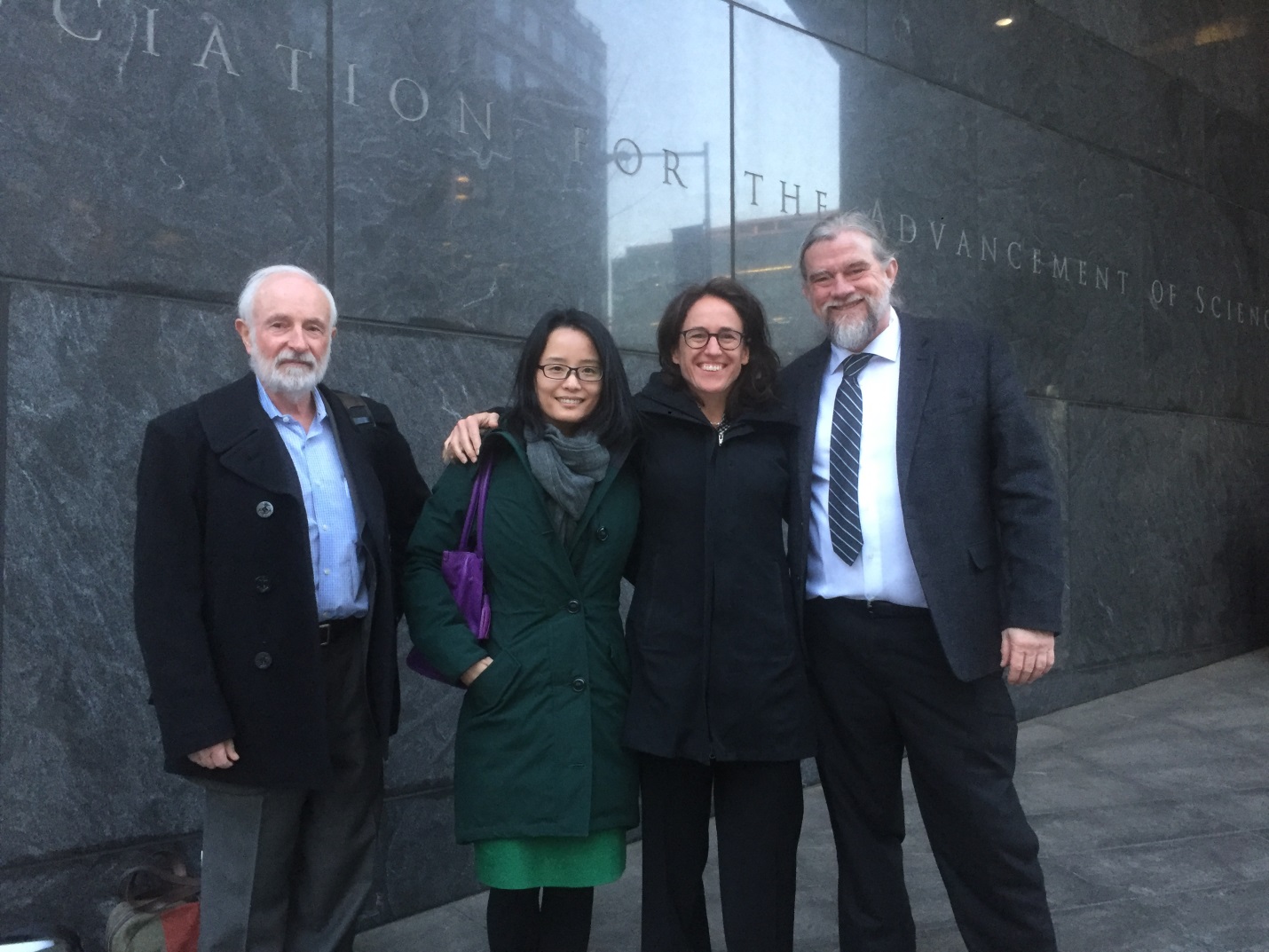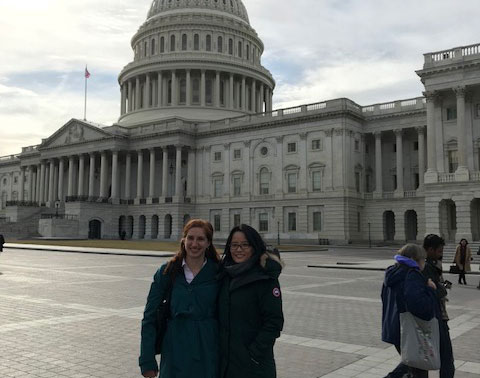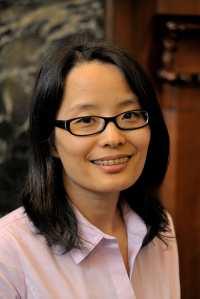The ASA Advisory Committee on Climate Change Policy and the Section on Statistics and the Environment sent four statisticians to the eighth annual Climate Science Day (CSD) on Capitol Hill at the end of January. Peter Bloomfield, Dorit Hammerling, and Leonard Smith were return CSD participants, while Bo Li participated for the first time.

CSD’s purpose is to connect scientists with congressional lawmakers and their staffs to discuss climate science, a purpose that is quite broad considering the wide range of views and interests across the 50 states and 435 congressional districts. The scientists attended a series of briefings earlier in the day to prepare them for this range. The briefings included a discussion with a panel of Hill staffers, tips for Hill visits, strategies for communicating about climate science, a keynote speaker, and time for each team—two scientists of different disciplines and a science society staff person—to prepare specifically for their meetings. This year’s keynote speaker was Laura Helmuth, the health, science, and environment editor at The Washington Post.
With a goal for productive, engaging discussion, the request made to congressional offices in the past was to consult CSD participants or the sponsoring organizations when they had questions regarding climate science. This year, however, CSD participants were encouraged to focus on connecting the mainstream scientific view with current and potential future impacts of climate change in their districts for offices that have not yet acknowledged the scientific community’s view of climate change as, for example, was stated in the 2016 letter signed by 31 scientific organizations, including the ASA.
For offices whose views were more congruent with the mainstream scientific view, the discussions were about being a resource and the risks specific to the district/state.
The 19 2018 CSD participants—sponsored by 10 science associations—collectively had 70 meetings. As reported last year, participants again noted the changing tone of climate change discussions in many offices. Where once there was polite, but short and nonengaging discussions, there was more open discussion about the impacts of climate change in the district or state and even the political challenges.

Hammerling, who participated in her second CSD, also mentioned she enjoyed the interaction with other CSD scientists and the preparatory briefings. Li commented on the importance—as part of a scientist’s responsibility to society—of regular communication with policymakers and providing updates from the research community about new discoveries and developments.
Original article can be found here: http://magazine.amstat.org/blog/2018/04/01/climate-science-day-2018/
